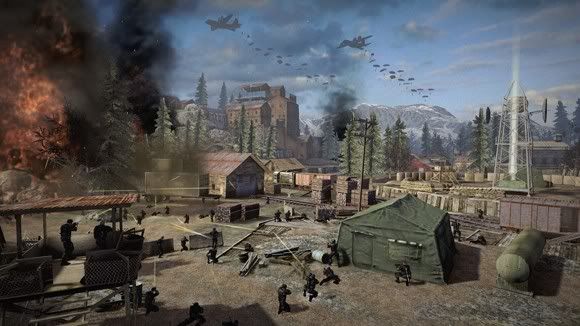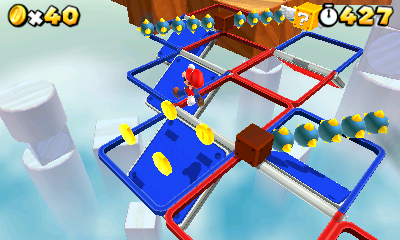This post has not been edited by the GamesBeat staff. Opinions by GamesBeat community writers do not necessarily reflect those of the staff.
The sun was quickly vanishing behind the horizon as day transformed to night before my eyes. The sudden realization that not only had a friend and I failed to build ample shelter from the horrors the night would bring but that neither of us had eaten a thing all day. Thunder blasting overhead as rain poured down on us while we desperately sought out some form of protection.
I was entirely out of my element here. My buddy, Travis, was my guide to this alien world; however, at the moment we were both at the mercy of the encroaching night. When Travis paused to franticly build a tool that might aid us in our fight for survival, I did the only thing I could think of: I climbed a tree. Travis soon followed as monsters spawned around us, and together we managed to survive the night hidden high atop a tree. This was my first night in developer Mojang's Minecraft.

Actually, I should take that back as that wasn't my first night in Minecraft since I had been involved in the beta for some time. This was my first attempt to truly learn what the game had to offer via Travis who had spent 100s of hours playing. I was completely lost, knew very little of what I needed to survive, and Minecraft wasn't about to teach to me anything. That's why Travis was there.
This has been a growing trend in video games recently. Dumping a player into a world with little to no instruction of what is going on before they are left to their own devices. I had made several attempts to find my way through Minecraft, but each ended the same; digging a hole and hiding until day light.
Sure I could have looked up information online. There are numerous guides, wikis, and other resources at my disposal, but I wanted to just play the game not learn how to play the game.
I encountered this same problem in From Software's Demon's Souls, which did me the courtesy of teaching me to attack and block before I was left for dead. Here was an amazing role-playing game that plenty of my friends were enjoying and talking about nonstop, yet I felt completely lost every time I booted it up. My character never leveled up, I spent nearly all of my time in spirit world, and I felt as if there were key elements that I had missed.

Education found its way to me though thanks to an online forum where I made an offhand comment about being lost in Demon's Souls. An online friend took the liberty to fill me in on the vital details From Software had left out of their masterpiece, and suddenly, I too was sucked into this amazing game. I was blown away that the process for leveling up your character was buried in the game and how much had been left out. Some call this sort of experience rewarding, but I tend to find it annoying.
Now don't get me wrong here, I don't want a game to hold my hand leading me along through everything. Some direction would be greatly appreciated here. For some reason, video games tend to either hold your hand far too much like Criterion Games' Need for Speed: Hot Pursuit, which made me sit through a 10-minute video that I couldn't skip. It explained what every mode was for the game; this was extreme overkill. I didn't need to know what multiplayer, single player, time trials, and other things like that were. I've played plenty of racing titles over the years.
Many developers treat the players as if we are complete idiots — often designing games as if we have never before played anything like them. This almost feels insulting in some cases. When playing MAG from Zipper Interactive, the tutorial acted as if this was my first time on a first-person shooter. Everything from looking down the sights, running, firing, throwing grenades, and more was covered before the game taught me what I really wanted to know.

Some of the worst examples is when I'm starting a game over and being forced through tutorials. Advance Wars from Intelligent Systems jumps readily to mind. I love this series to death and have a borderline addiction, but with each entry I groan when first booting it up. Every time I'm met with a long, drawn-out tutorial — without the option to skip it — that teaches me all aspects of the game. Yes, I know how to move my soldiers. Yes, I know how to capture a city. Yes, I know how to produce units. All of this is incredibly unnecessary, and it leaves me mashing buttons trying to get through as quickly as possible.
I've found it is rare for a game to teach you how to play as the game unfolds. The majority of the time, we're facing the obvious as constant prompts onscreen remind you which button does what, how to do certain tasks, or the ever-annoying sidekick character who chimes in while interrupting the experience with a quick "how to" segment.

Super Mario 3D Land from Nintendo EAD Tokyo actually does a great job of teaching the player on the fly. A quick example of this would be the first time you encounter platforms that flip over each time you jump. Before you even reach the platforms, you hear a beep each time you jump. When navigating across said platforms on your first time, they are located in an area where you won't die if you make a mistake. There's no interruption to the game play and no onscreen prompt to tell you what is going on; the game simply shows you how it works before throwing you into a situation where a mistake means death.
More developers taking this approach to game design would be a great thing in my eyes. The game holds your hand just enough that you understand how the mechanics work before tossing you into a situation with real challenge. I want a game to guide me down a path without there being a sign every five feet telling me that I'm going the right way. At the same time, I find it to be off putting when a game gives me no direction at all and leaves many key elements buried for me to stumble upon.
Tutorials need to walk a fine line between leaving enough unknown that the player feels that he has accomplished something and giving the player enough information where he feels he is confident enough to move forward. My time spent in Minecraft and Demon's Souls would have been far smoother if I had some idea of how the mechanics worked in the game.
